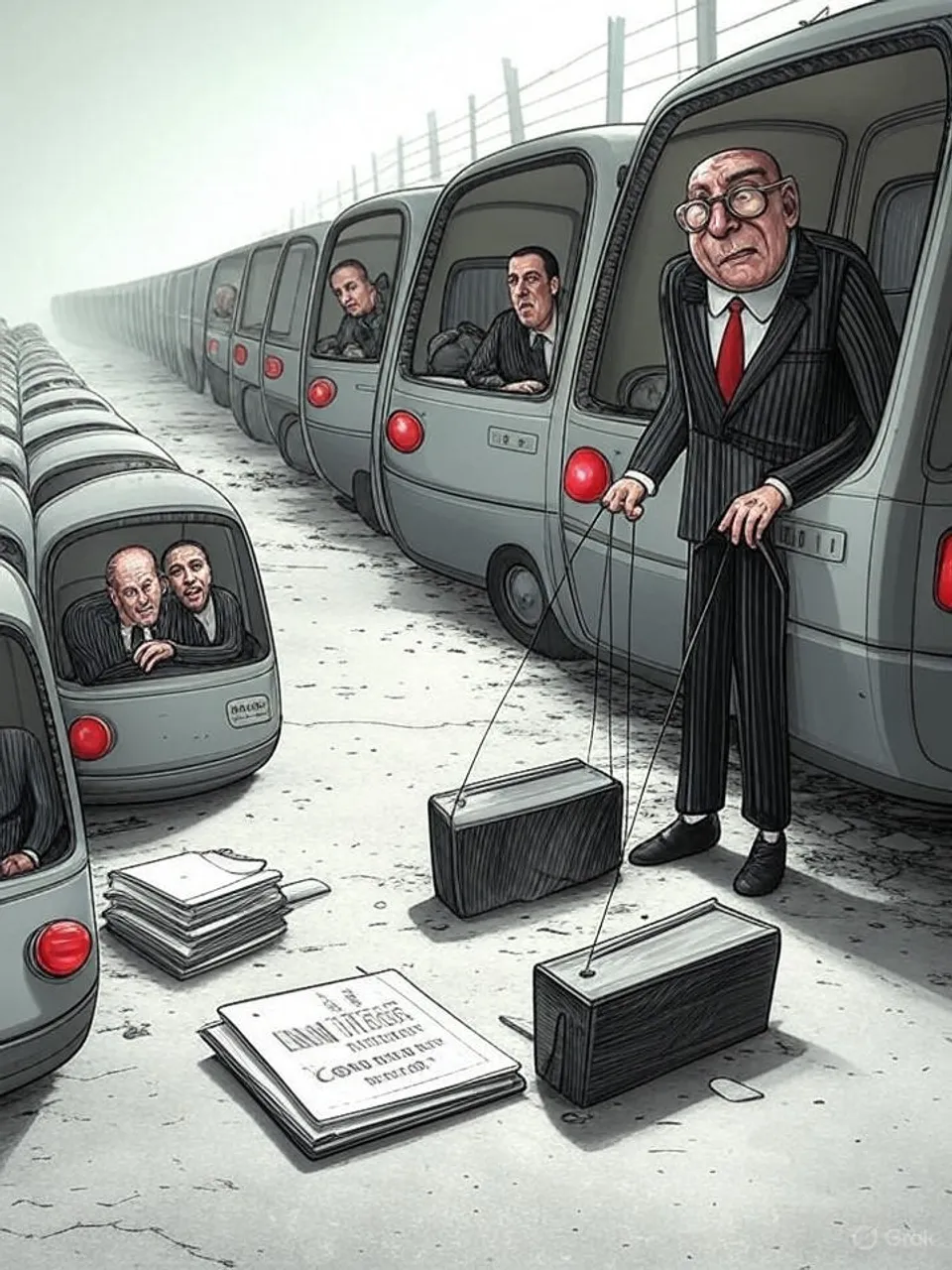Ghost Directors Command a Network of Shadow Mini-Marts

Over 100 UK high street businesses fronted by fake registrations exploit asylum seekers for illicit profits
A Kurdish crime network uses ghost directors to run mini-marts selling illegal goods, exploiting migrant workers amid weak enforcement. This exposes systemic gaps in immigration and business oversight that persist across governments.
Commentary Based On
BBC News
Crime network behind UK mini-marts is enabling migrants to work illegally
Ghost Directors Command a Network of Shadow Mini-Marts
A BBC investigation uncovers over 100 mini-marts, barbershops, and car washes from Dundee to south Devon controlled by a Kurdish crime network that exploits asylum seekers through fake company registrations.
Ghost directors—individuals paid to lend their names to official paperwork—front dozens of businesses each on Companies House without managing them. These entities dissolve after about a year, then reemerge with minor paperwork tweaks to evade detection. The setup allows illegal sales of vapes and cigarettes, with one operator reporting weekly takings up to £3,000 from illicit tobacco alone.
Undercover reporters posing as asylum seekers received straightforward offers to buy and run shops. In Crewe, a rejected asylum seeker named Surchi offered his Top Store for £18,000 cash, assuring no need for legal work rights. He paid £250 monthly to a ghost director named Hadi, who oversees 40 to 50 similar outlets and ignores what gets sold.
Surchi detailed operational evasions: no council tax payments, tampered electricity meters, and a “stash car” for hiding stock until Trading Standards officers clock off at 17:00. He showed a basement hiding spot and admitted selling vapes to 12-year-olds without issue. Payments funneled through a cousin’s unrelated bank account 15 miles away, further obscuring trails.
Kurdish Facebook groups advertise these businesses weekly, listing mini-marts alongside takeaways and car washes for sale. Builders responded to undercover queries with offers to construct concealment systems, including a £6,000 loft dispenser that drops cigarette packs through a chute, designed to fool sniffer dogs. Such “fine craftsmanship” underscores the sophistication of this underground economy.
Asylum seekers, trapped in Home Office limbo, endure 14-hour shifts for £4 per hour—far below minimum wage. Permission to work exists only for specific shortage occupations, excluding shop roles, yet enforcement visits are rare; Surchi reported just one in five years, with no follow-up. Fines for illegal sales reach £10,000, but profits dwarf penalties, perpetuating the cycle.
Financial crime investigators flag these operations with classic organized crime markers: rapid dissolutions, multiple directorships, and opaque ownership. The network extends beyond the 100 identified sites, likely nationwide. It preys on migration pressures, turning legal uncertainties into criminal opportunities.
Home Secretary Shabana Mahmood condemned the scheme as an incentive for illegal entry, vowing intolerance. Yet her statement echoes prior administrations’ rhetoric without detailing enforcement ramps. Labour’s border security pledges, like those from Conservatives before, falter against institutional overload.
This mirrors broader enforcement breakdowns. Since 2010, small boat arrivals have surged from hundreds to tens of thousands annually, straining a system that processed just 10,000 asylum claims in 2023 amid backlogs exceeding 100,000. Ghost companies exploit Companies House laxity, where basic checks fail to verify director involvement.
Economic desperation fuels participation. Rejected claimants, denied benefits and work rights, enter shadows where crime networks offer survival at exploitative rates. Ordinary citizens face inflated prices from untaxed illicit goods, while legitimate retailers compete against untouchable rivals.
The pattern endures across governments. Blair’s 2000s immigration expansions seeded unchecked inflows; Cameron’s 2010s targets missed by millions; Johnson’s post-Brexit points system bypassed by boats; Starmer’s current vows repeat without structural fixes. Each regime inherits and amplifies the same voids.
UK high streets now host parallel economies that undermine rule of law. Tax evasion, product safety risks, and labor exploitation compound fiscal losses—estimated at £27 million yearly in related schemes like voluntary returns. Functional governance would demand integrated enforcement: real-time Companies House audits, routine immigration sweeps, and wage protections.
Instead, asylum limbo and porous registration enable crime syndicates to thrive in plain sight. This reveals a state apparatus too fragmented to police its own foundations, eroding public trust in institutions meant to protect borders and commerce. Britain’s decline manifests not in grand failures, but in these everyday infiltrations that normalize illegality.
Commentary based on Crime network behind UK mini-marts is enabling migrants to work illegally at BBC News.